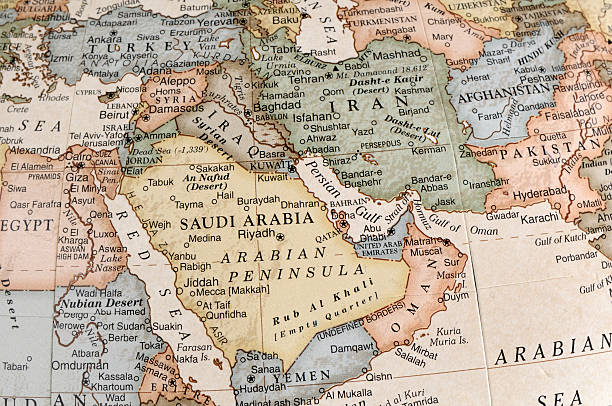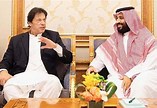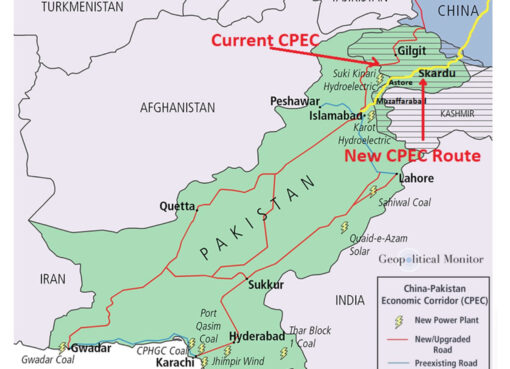Palestinians and Israelis must realize that they have to live together and hence better negotiate among themselves a mutually acceptable formula rather than relying on outside powers to give them an outright victory on a platter
by Prasad Nallapati*
Prime Minister Netanyahu is in no mood to heed to international appeals against his resolve to pursue ground operations into southern Gaza town of Rafah where over 1.5 million displaced Palestinians are sheltering. Israel faces no global retribution with the US fully backing it.
Attempts at negotiated peace are a non-starter as they fail to address either side’s perceptions of their existential threats. Netanyahu vowed not to stop the war until the Gaza Strip is rid of the Hamas while the latter is using Israeli hostages as a bargain for ending all military operations to save its skin.
Israeli army, however, is nowhere near securing its hostages or decapitating Hamas leadership despite four months of no-holds-barred pouncing of Gaza that saw some 30,000 innocent civilians killed and over two million displaced amidst massive destruction. They could manage to free just two of the hostages after an expansive SWAT operation on February 12 in Rafah.
Netanyahu is riding a ferocious tiger and sees no prospect of demounting in sight. Hamas raids in October last has sounded a death knell to his political career. His survival instinct is pushing him to expand the war as far and as long it takes to retrieve his political legacy. Plans are afloat to cleanse Gaza of all its Palestinian residents and free Israel of any future threats.
How has This Come to this Pass?
West Asia has long been in transition. The Arab Awakening (“Spring”) of the last decade has shaken the foundations of the Sheikhdoms. Aged rulers were so far living in luxurious comfort under the security umbrella of `Uncle Sam’, unperturbed by popular cravings. Jihadi forces that were let loose had almost succeeded in remaking the Arab world in their own form.
New generation of Arab leaders have understood the seriousness of the existential threats, but the US was rather slow in appreciating their concerns or the lurking fires lit by Islamist leaders like Recep Erdogan of Turkiye.
The youthful Gulf emirs are more adventurous in experimenting with socio-political reforms, economic diversification, and new security partnerships, while being loathe to any kind of slights from Washington.
The new leaders, some being in their 30s, have no sentimental attachment to Palestine cause. And hence, they have no qualms in normalizing ties with Israel and in fact they see the Jewish state as key to their economic success.
US Foreign Policy in Free Fall
While past US leaders had unleashed Islamist Jihadi forces through their shortsighted policies in Af-Pak region and Iraq, President Barack Obama had gone full throttle with Erdogan to facilitate jihadi takeover of Syria. His Libya policy of “Leading from Behind” further added fuel to jihadi fires. Egypt’s strongman Hosni Mubarak, a staunch US loyalist, was unceremoniously forced to hand over reigns to radical Muslim Brotherhood.
Obama’s courting of Iran and regularization of its nuclear program, under allegedly unrealistic conditions, created serious doubts of the US honouring security commitments to not just the Gulf Sheikhdoms but also Israel.
President Trump’s `personalized’ diplomacy widened the cracks in delicate regional balance. He abandoned any pretensions to a `two-state’ solution to the Palestine issue and declared Iran a `pariah’ state once again. His successor Joe Biden failed to comprehend the changed dynamics in West Asia and is incapacitated to bring any policy improvements.
Iran, meanwhile, has grown more powerful by advancing nuclear and missile programs, despite American sanctions and killings of its scientists.
Loss of Faith in US as “Honest Broker” Or an effective “Policeman”
President Biden’s unwillingness to effectively intervene and stop Israel’s unprecedented carnage in Gaza is surprising. The US has even stalled demands for an immediate ceasefire even as the hapless Palestinians are “roasted” to death in what is said to be close to a “genocide”.
Demanding early ceasefire, Iran has intensified its `undeclared’ war pressing it’s `proxy’ forces in Yemen, Iraq, Syria and Lebanon to unleash a missile barrage disrupting commercial shipping through the Red Sea and endangering US forces in the region.
Barring a handful of US allies, most other countries including its European and Gulf partners refused to support American military maneuvers in the region against the Irani proxies. The EU has decided to send its own naval mission to the region, which they call strictly defensive, to protect their shipping vessels. They will not join American counter strikes, as they put it.
UAE, Qatar, Oman, Kuwait and Saudi Arabia have reportedly denied permission to use their facilities and airspace for US airstrikes against Iran-backed groups fearing retaliation from Tehran. Iraq and Syria have demanded removal of US military forces from their territory, which were stationed there as part of a mission to destroy jihadi group of `Daesh’ (the Islamic State).
The US, therefore, is literally fighting a lone battle in the region in support of Israel.
Saudis Deepen Security Ties with Iran
Political détente between the two countries has gained unprecedented momentum in the past few months to expand cooperation in security and military matters. A high-level Iranian military delegation visited Saudi Arabia recently to take part in the World Defence Show in Riyadh, where they had extensive talks with the Saudi Chief of General Staff.
Iran has also reportedly supplied thousands of drones to Saudi Arabia, along with experts, for the use of Sudanese army. Riyadh is backing the latter in its fight against a rebel paramilitary force.
The fact that Saudi Arabia remained unscathed in the current missile attacks from Iran-backed Houthis in Yemen is proof of growing military understanding between the erstwhile archrivals.
Houthis had a decade long history of attacking Saudi installations, which peaked in June 2020 when they targeted the King Khalid Airport and Defense Ministry headquarters in Riyadh. This was what sparked loss of Saudi faith in American protection and its desire to improve relations with Tehran.
New Competition between Saudis and Emiratis
Saudi Arabia and the UAE are no more prepared to bow to American diktats and rather preferred to coordinate their energy policies with Russia under the OPEC+ framework. They repeatedly defied US appeals on oil production cuts.
They seem to be even prepared to challenge American influence in other conflict zones as they got engaged in an unfettered race between themselves for economic expansion and political influence in these regions where the US had been the dominant force.
The two are backing rival forces in many warring countries like Yemen, Sudan, and Horn of Africa with liberal military supplies against the wishes of Washington, DC.
Conclusions
Notwithstanding the general decline of American influence in West Asia and growing demands for removal of its forces from the region, the US is the only country that can ensure peace and stability in the otherwise the most dangerous place of the world.
Saudi-Iran détente is more a matter of temporary convenience and the traditional Shia-Sunni rivalry for regional domination may flare up sooner than later. The Saudi-Emirati march to economic growth is made possible by American presence that kept all disruptive forces in check.
The Gaza crisis, however, is unraveling several undesirable regional ramifications. One such phenomenon is reemergence of Islamic State and other Islamist forces, which have been dormant for a while. Earlier this month, Turkiye saw an attack in the Santa Maria Catholic Church in Istanbul in which one person was killed.
Islamic State killed 13 Syrian soldiers in the Badia desert area which runs from the outskirts of Damascus to Iraqi border during this month. On February 11, three members of the UAE armed forces including a Colonel and one Bahraini officer were killed at a military base in Somalia’s capital Mogadishu by Al-Shabab terrorist group, affiliated with Al-Qaida.
The US and regional states, therefore, will have to rework their equations in the light of changed geopolitical realities to maintain peace and stability for all in the region. Iran is a much stronger player in the region and the US and Israel must learn to live with and co-opt it for larger good rather than undermining its strengths.
Palestinians and Israelis also must realize that they have to live together and hence better negotiate among themselves a mutually acceptable formula rather than relying on outside powers to give them an outright victory on a platter.
(*Prasad Nallapati is President of the Hyderabad-based think tank, “Deccan Council for Strategic Studies” and former Additional Secretary to Govt of India)




